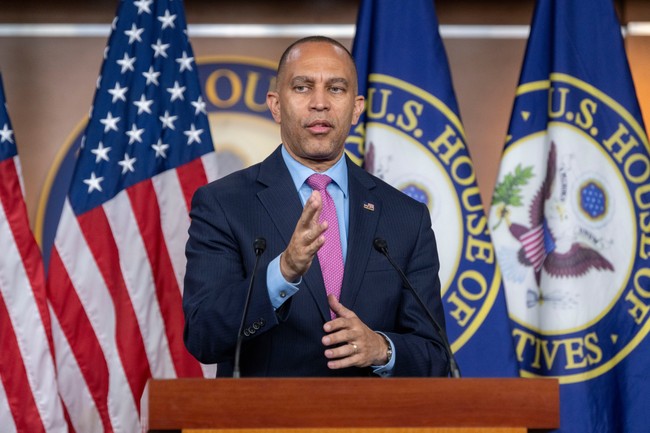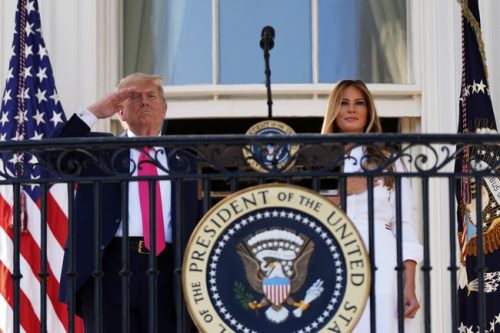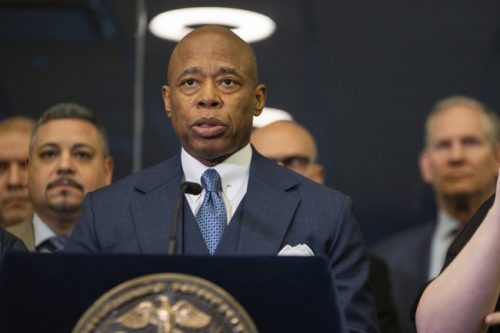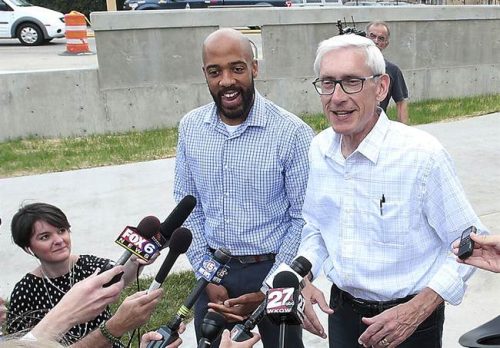The latest clash over President Trump’s planned White House ballroom has turned into another episode of partisan lawfare, with House Minority Leader Hakeem Jeffries publicly threatening to investigate private donors and Democratic officials doubling down on legal attacks that many see as political theater. This piece examines the background of legal battles since 2021, the specific accusations aimed at Trump and his donors, and why Republicans view these moves as partisan overreach rather than legitimate oversight.
Since President Trump left office in 2021, Democrats have leaned heavily into legal strategies against him, making prosecutions and investigations a central part of their playbook. That pattern continued as New York Attorney General Letitia James pursued cases connected to the former president, and now faces her own legal troubles amid charges of mortgage fraud. Many conservatives see a double standard: accountability applied unevenly and tailored toward political opponents.
Critics warned that using the justice system as a political tool would backfire, but Democrats pressed on anyway. Frank Luntz warned that attempts to seize Trump’s properties would make him more popular with voters, and that prediction has played out in public opinion cycles. Republicans argue these actions are not about upholding the law but about gaining political advantage.
Now Jeffries has turned his attention to the private donors who backed President Trump’s White House ballroom project, promising investigations and consequences. “More likely, this is part of what Donald Trump has been doing since day one of his presidency: running the largest pay-to-play scheme in the history of the country. And probably soliciting donations from people who’ve got business before the United States government,” Jeffries said. That public statement puts donors on notice and escalates the partisan stakes.
Jeffries did not stop there. “And all of this is going to have to be investigated. It will. All of this will have to be uncovered. It will. And these people are going to be held accountable, no matter how long it takes,” Jeffries continued. “And that’s a warning to all of these people participating in this scheming to manipulate taxpayer dollars and, of course, to destroy the people’s house. The White House belongs to the American people. It doesn’t belong to Donald Trump.”
From a Republican perspective, those lines read less like oversight than like a political threat aimed at lawful private donations. Seventy-five million Americans voted for Donald Trump, and many supported his plan to restore and upgrade parts of the White House. Suggesting donors are part of a nefarious scheme without publicly presented evidence risks chilling lawful civic participation.
Conservative voices also point out context that Democrats rarely acknowledge: presidents routinely make alterations to the White House, and past administrations have left behind renovations and items for successors. President Trump’s ballroom plan, announced over the summer, targets an overhang on the East Wing and not the residence or West Wing, and the space would remain available to future administrations. Framing the project as destruction of the people’s house is overblown political theater.
Hakeem Jeffries issues a “warning” to funders of the White House ballroom:
“These people are going to be held accountable, no matter how long it takes."
They continue to threaten revenge on one hand, while hyperventilating about Trump’s “revenge tour” on the other. pic.twitter.com/lt0iGOBL7s
— Western Lensman (@WesternLensman) October 23, 2025
There is an additional angle Republicans highlight: selective memory on other high-profile incidents. Unlike Clinton, who stole $28,000 of items from the White House, Democrats now lecture about ethics and preservation while pursuing far-reaching probes of political opponents. That contrast fuels the charge that Democrats apply one set of standards to Republicans and another to their own side.
At the same time, the administration’s critics maintain that transparency is appropriate when private money touches federal property projects. Republicans counter that transparency and lawful donation activity are not the same as corruption, and that investigations should be grounded in verifiable evidence rather than partisan accusations. The disagreement underscores how oversight and prosecution have become politicized tools rather than neutral processes.
What this episode makes clear is that the culture of legal retaliation shows no signs of easing. Democrats who once chanted that “no one is above the law” appear to have reinterpreted that slogan to mean “no Republican is above legal jeopardy,” while overlooking their own missteps. For Republicans, Jeffries’ statements confirm a broader pattern: politics-first legal action dressed up as justice.






